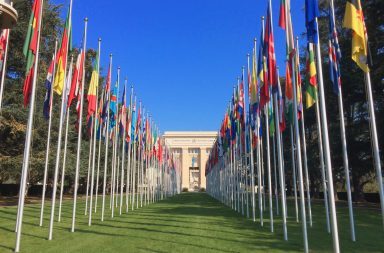
Sulla base di un comunicato di Pascal Tanguay, l’associato per l’Asia dell’International Drug Policy Consortium (IDPC) – il network mondiale al quale Forum Droghe è affiliato – questo si accinge a inviare una dura lettera di protesta al Dottor Paijit Warachit, Ministro della sanità della Tailandia, che segnaleremo non appena sarà ufficializzata. Resta da vedere se, e come, si muoveranno l’OMS e l’Agenzia droga e crimine dell’ONU (UNODC), che dalle mani del nostro falco Costa è passata a quelle diplomaticamente più morbide dell’ex ambasciatore russo Fedorov, il cui orientamento in materia politiche dell’agenzia da lui diretta resta tuttavia celato da spesse cortine fumogene. (Come è noto, OMS e UNODC si sono spesso trovate in contrasto tra di loro sulle politiche antidroga e in particolare sulle misure di riduzione del danno). Per ora appendiamo alla nostra nota il testo del comunicato di Tanguay, che contiene vari link a fonti le quali consentono di approfondire gli “orribili dettagli” di questa vicenda.
Note from Pascal Tanguay, the IDPC Associate for Asia:
‘The new government is not wasting time – campaign promises were made in regards to dealing with the drug issue and the new PM is actioning those promises. On Sunday, the new PM appointed Deputy Prime Minister Chalerm Yubamrung as director of the national drugs suppression centre (http://www.bangkokpost.com/news/crimes/256036/chalerm-in-charge-of-drugs-suppression). On Monday, the Bangkok Post’s cover page title article was “Two-pronged drug fight launched – Tough on traffickers, rehabilitates addicts” (http://www.bangkokpost.com/news/security/256072/two-pronged-drug-fight-launched). The Nation had a similar feature, more explicitly noting “Yingluck’s drive to ‘reduce drugs scourge by 80%'” (http://www.nationmultimedia.com/home/Yinglucks-drive-to-reduce-drugs-scourge-by-80%E0%B9%90-30165007.html). The new strategy, ‘Force of the Land’, seeks to forcibly “treat or rehabilitate” 400,000 drug users – (timeline undefined – though Acting National Police chief Priewpan Damapong vowed to reduce the drug trade within four months and strictly implement anti-drug measures as issued by the government). All speaking in the same voice, the Deputy PM noted to the Bangkok Post that the defense and justice ministers would find accommodations in military barracks or in prisons for those sent to rehabilitation programs – not surprising given that “The Justice Ministry has also asked the Royal Thai Police to loan deputy national police chief Pol Gen Adul Saengsingkaew to the ministry for a year to be Office of Narcotics Control Board (ONCB) secretary-general. The current ONCB chief, Sureeprapa Traiwes, is expected to be made deputy permanent secretary for justice.” (http://www.bangkokpost.com/news/politics/256218/pheu-thai-builds-on-its-power). The new government’s silence in regards to harm reduction and the health of people who use drugs is deafening despite Dr. Petsri’s brave and valiant call for the new government to align their ducks behind drug strategies that address HIV by incorporating harm reduction. Much clearly remains to be done in Thailand in order to have at best a genuinely enabling environment, or at worst an environment where efforts by one arm of the government are not undermined by the other.’




